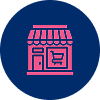Article Courtesy of OPSOLUTIONS
What is Counterfeiting/Intellectual Property (IP) Theft?
Counterfeiting is the illegal use of another person’s trademark that are being used by businesses of all sizes to help consumers recognize their products. A trademark is a word, phrase or symbol that identifies the origin or source of a product or service that is offered in the marketplace.
A counterfeit item, on the other hand, is one that is produced without the authorization of the brand’s owner. Criminals attempt to benefit fraudulently from a trademark owner’s reputation by creating or selling a counterfeit product.
The Danger of Counterfeiting in Businesses
Business, whether big or small, are tremendously affected by the criminal act of counterfeiting. Several authentic brands have suffered irreversible and significant losses that affects not only the company itself, but also their consumers.
Loss of Sales and Income
One of the most serious consequences of counterfeiting is the loss of sales. Counterfeiter competes your brand by selling a lower-cost duplicate of your original product, thus resulting in the decrease of your potential consumers
In a world where everything is mostly online, consumers are then easily tricked by a lot of fake products. Counterfeiters nowadays are quite efficient in operating online by copying a company’s designs and branding and combining their knock-off items with online product reviews. They also sometimes use the brand’s original photographs which leave the buyer guessing as to what is real and what is fake.
Consumer Dissatisfaction
As we all know, one of the most efficient forms of marketing is word of mouth. As a result, if these consumers acquire low-quality duplicates of a product, they will post negative reviews online, further consolidating this new reputation problem and reinforcing the concept that the actual brand produces low-quality items, which leads us to our next point.
Brand Reputation Damage
Establishing your own brand in the marketplace is really a difficult challenge for every business. However, since your brand has been replicated using low-cost items, the authenticity and benefit it provides to consumers has been reduced, causing your brands’ reputations to suffer.
The Rising Use of Authentication Apps
Since counterfeiting has been a huge issue for most businesses, brand owners are becoming more aware of the problem and are intelligent enough to address it with effective authentication applications.
Most consumers and organizations nowadays want more secure online transactions, which is why several authentication programs, such as Google Authenticator, have been released in the market and are used by people all over the world to quickly determine the legitimacy of a product. Various industries are also inclined to use these applications to prevent product counterfeiting
Food and Beverages
As we all know, foods and drinks are our primary source of energy, which is why businesses that sell them are so concerned with establishing their brands and ensuring that their image is not tarnished. Customers would not want to buy substandard food that they would consume.
Healthcare
Every consumer and/or patient has the right to and should receive first-rate health care. Businesses in this sector are very careful to provide authentic products because they don’t want their customers to experience any negative side effects from the product they’re selling. As a result, it’s become increasingly important for them to use authentication apps to help customers distinguish between what is authentic and what isn’t.
Beauty Products
Beauty products are created to aid consumers in enhancing their natural beauty, which is why companies take great care when providing these items to their customers. The majority of customers in this industry place a high value on authentic brands and conduct extensive research on each brand’s reputation. Who wants to use a fake cosmetic product in the first place?
E-Commerce Platforms
Counterfeiting on a digital platform is one of the numerous issues that a company must deal with these days. As e-commerce platforms are frequently targeted by fraudsters, these businesses are continually depending on an authentication software to verify the identity of their customers and/or providers.
Retail
Retail products are the most counterfeited items because they have a wider range of consumers. As a result, more retail organizations are necessitated to use authentication software to further prevent this issue as well as build their own brand among vendors.
Transportation and Logistics
Consumers using these services are primarily looking for the most trusted companies that’s why several firms in this sector are relying heavily on authentication software to help their consumers identify their trademark in this industry.
Finance
Obviously, who would want to deal with fraud services anyway when it comes to their finances? When financial organizations that are selling themselves in the market lack a reputation or authenticity, consumers are quickly turned off. Same goes with financial companies, they would not want to deal to any clients who cannot prove their identification.
Resources
As an industry that relies on natural resources as raw materials, it’s critical to get your brand registered and prevent your products from being counterfeited so that potential clients can quickly assess your industry reputation.
QR Codes Authentication
Since quick response (QR) codes are now widely used by a range of organizations and/or services, obtaining your own QR code for authentication is a vital step for every firm in the market to do in order to avoid identity theft. As a result, if a fraudster tries to replicate your brand’s distinctive QR code, authorities may quickly trace them down and put a stop to it. It’s also a way of informing customers about who is genuine and who isn’t.
Edge of RealQR
RealQR, unlike other anti-counterfeiting solution applications, is a GS1 Standards-based brand protection solution with proprietary printing technology that prohibits the duplication of your unique QR code. It is also simple to set up as a solution and deployment, and it works with any mobile device that has a camera scanning feature.
It caters brand owners, manufacturers, as well as distributors/retailers to ensure maintenance of their reputation, prevention of identity theft, as well as establishment of its branding and authenticity. This application also helps consumers identify trustworthy brands and products in the market.
RealQR offers extreme flexibility in embedding codes into products, which can also be integrated into your printer. It also generates analytics to detect numerous fraudulent reports, ensuring that you, as a consumer, or your product as a brand owner, are not counterfeited.
RealQR also drives customer engagement by promoting your brand’s transparency with unique information which you may display when consumers scan the labels, leading them to your website, and/or encouraging them to join your loyalty program.
3 Layer Protection
Our labels may be built with 3-in-1 Anti-forgery Technology, which is both visually appealing for customers and makes them extremely secure at the same time.
Analytics Program
Through this program, your company will gain valuable consumer insights, such as location, user demographics, and popular product which you can use to enhance your brand strategy.
Anti-Phishing
Our system will detect and notify you of any attempts to replicate your website using this feature.
Although imitation is the best form of flattery, counterfeit items are costing the genuine deal both in terms of reputation and income; new technology might be the solution.






